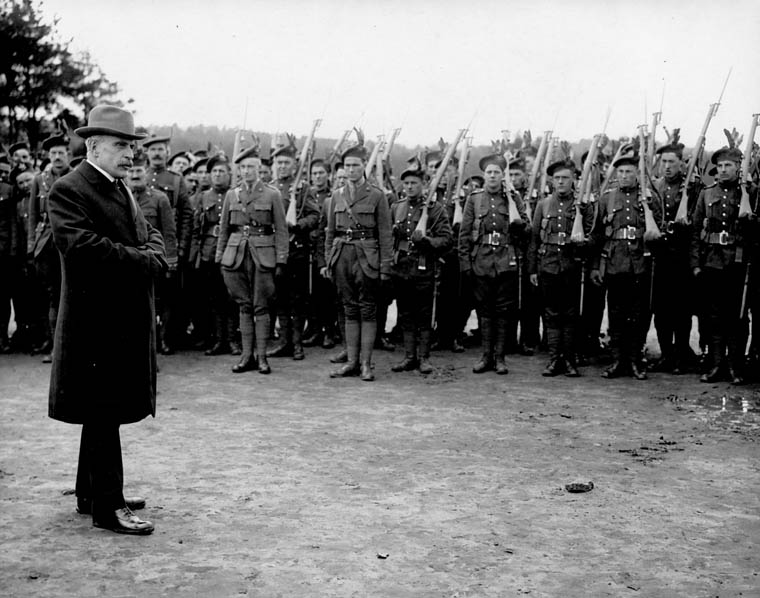Statesman who made Canada accept conscription: Who is Robert Laird Borden?
He was ready to send troops, supporting his policy of involvement in the civil war in the Soviet Union. But when the Canadians resisted, the 3,000-strong Canadian army was recalled from Vladivostok.

(1854-1937) Canadian politician and statesman. He advocated the representation of Canada as an independent member of the League of Nations. He was born in Grand Pre, Nova Scotia (New Scotland), in June 1854. He died in Ottawa on June 10, 1937. At the age of 15, he dropped out of school and started working as an assistant teacher at the Glenwood Institute in Matawan. He later studied law. He was admitted to the Nova Scotia bar in 1878. After practicing law for a while in Halifax and Kentville, he established his own law firm in 1889.
Sir Robert Laird Borden (June 26, 1854 – June 10, 1937) was a Canadian lawyer and politician who served as the eighth prime minister of Canada from 1911 to 1920. He is best known for his leadership of Canada during World War I.
His friendship with Conservative Party Chairman Sir Charles Tupper led him to enter politics. He entered the House of Commons in 1896 as a Member of Parliament for Halifax. In 1900, when Tupper failed to be elected to parliament, the party board recommended Borden to the presidency on a temporary basis. After that, Borden was the party chairman for a long time. In the 1904 and 1908 elections, the Conservatives failed to gain a majority. The Laurier government's signing of a treaty with the United States in 1911 was met with opposition from businessmen who favored a policy of national protectionism. This, in turn, led to the Conservative Party gaining a majority of votes in the 1911 elections and forming a government under Borden.
The Borden government was more concerned with external issues. When World War I broke out, the failure of French-Canadian officers to be appointed to important posts created unrest, especially in the French-dominated Province of Quebec. The government was accused of incompetence, disconnection from the people, and profiteering from the war.
After the 1917 elections, Borden formed a mixed government with British MPs. He passed the bill that introduced conscription to further strengthen Canada's army of half a million volunteers. He expressed his readiness to send troops, supporting the Allies' policy of involvement in the civil war in the Soviet Union. However, with the influence of public opinion, the 3,000-strong Canadian army was recalled from Vladivostok.
Borden violently suppressed the Winnipeg General Strike of 1919, accusing workers of causing unrest in the country, and promptly ratifying a bill amending the penal code, which was being debated in parliament at the time. He was replaced by Arthur Meighen in 1920. He served as a Canadian delegate to the Washington Conference in 1921 and represented Canada at the League of Nations in 1930. He died in Ottawa on June 10, 1937.
Borden argued that Canada should also have an influence in British policy. It was intended to increase Canada's effectiveness by sending $35,000,000 to Britain to help build the three warships. In the first two years of World War I, he argued that Canada should also participate in the international political decisions of England. However, after British prime minister David Lloyd George formed the government, Borden was given a chance to express Canada's views. In the negotiations to sign the Treaty of Versailles, Borden supported US President Woodrow Wilson's Article 14 and argued that the British Empire and the US treaties were in Canada's interest.
Works by Robert Laird Borden
Canadian Constitutional Studies, 1922,
Cartada in Communealth, 1929,
Memoirs, (posthumously.)
-------------------------------------
Prime Minister during the First World War
https://www.thecanadianencyclopedia.ca/en/article/sir-robert-borden
